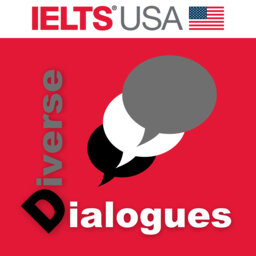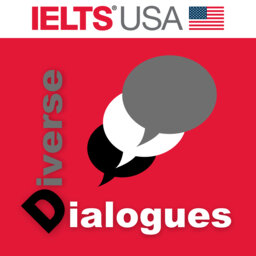Diverse Dialogues: Influence on the multilingual student’s journey
IELTS
Diverse Dialogues from IELTS USA Each episode of our podcast draws together a diverse range of voices, including educators, administrators, studen…IELTS believes language plays an extremely important role in the international student journey. Language proficiency in the language of instruction and accompanying social contexts has a profound effect on a student’s ability to communicate, learn and thrive. Students lacking the necessary proficiency may struggle academically, suffer from social isolation, may not be able to participate in the vibrancy of campus life in meaningful ways, and these factors can have long term effects on positive student outcomes.
At the same time, a multilingual student’s additional language fluencies and the freedom to make use of those languages can support a richer, more inclusive educational experience, in some part by fostering a sense of recognition and belonging.
IELTS wants to know, from perspectives across campus, how do higher education professionals and the students they serve balance the complex and expansive array of language influences to create cultural, academic and social language environments that help international students to succeed, from the admissions process to graduation and beyond?
In 1 playlist(s)
IELTS Diverse Dialogues
Diverse Dialogues from IELTS USA Each episode of our podcast draws together a diverse range of v…Social links
Follow podcast
Recent clips

Diverse Dialogues: Diverse Perspectives on Developing Opportunity and Equity
32:53

Diverse Dialogues: Exploring a Sense of Belonging at US Institutions
33:38

Diverse Dialogues from IELTS USA
00:42
 IELTS Diverse Dialogues
IELTS Diverse Dialogues